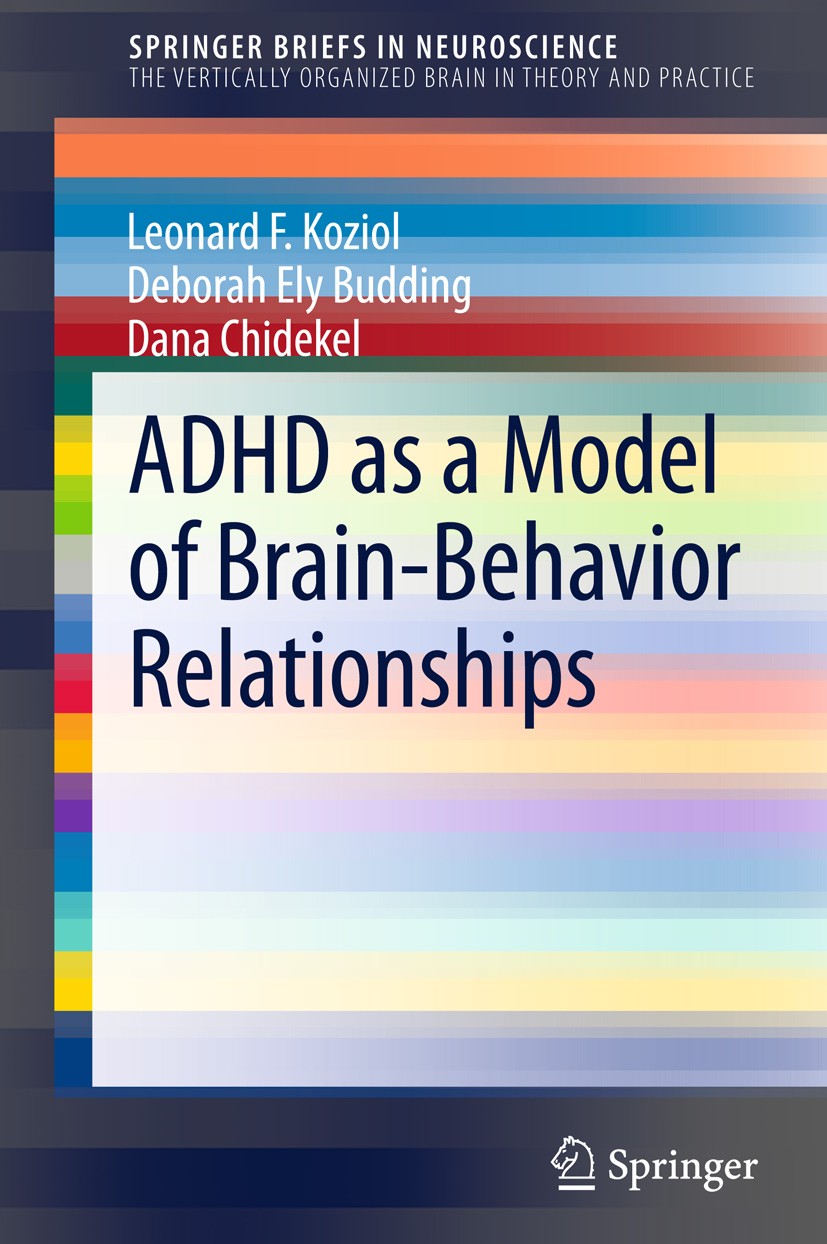| 期刊全稱 | ADHD as a Model of Brain-Behavior Relationships | | 影響因子2023 | Leonard F. Koziol,Deborah Ely Budding,Dana Chideke | | 視頻video | http://file.papertrans.cn/143/142696/142696.mp4 | | 發(fā)行地址 | Focuses on heterogeneity of presentations of ADHD and inadequacy of making the diagnosis on basis of behavior rating scales.Discusses the difference between the DSM observational system and attention | | 學(xué)科分類(lèi) | SpringerBriefs in Neuroscience | | 圖書(shū)封面 |  | | 影響因子 | .ADHD as a Model of Brain-Behavior Relationships.Leonard F. Koziol, Deborah Ely Budding, and Dana Chidekel.?Series Title: Springer Briefs in Neuroscience.Subseries: The Vertically Organized Brain in Theory and Practice.It‘s been a basic neurological given: the brain does our thinking, and has evolved to do the thinking, as controlled by the neocortex. In this schema, all dysfunction can be traced to problems in the brain’s lateral interactions. But in scientific reality, is this really true? Challenging this traditional cortico-centric view is a body of research emphasizing the role of the structures that control movement-the brain‘s vertical organization-in behavioral symptoms. .Using a well-known, widely studied disorder as a test case, .ADHD as a Model of Brain-Behavior Relationships. offers an innovative framework for integrating neuroscience and behavioral research to refine diagnostic process and advance the understanding of disorders. Identifying a profound disconnect between current neuropsychological testing and the way the brain actually?functions, this revision of the paradigm critiques the DSM and ICD in terms of the connectedness of brain structures regarding cognition | | Pindex | Book 2013 |
The information of publication is updating

|
|
 |Archiver|手機(jī)版|小黑屋|
派博傳思國(guó)際
( 京公網(wǎng)安備110108008328)
GMT+8, 2025-10-19 00:53
|Archiver|手機(jī)版|小黑屋|
派博傳思國(guó)際
( 京公網(wǎng)安備110108008328)
GMT+8, 2025-10-19 00:53


